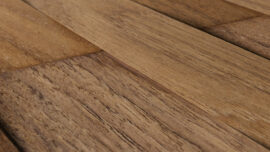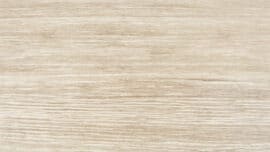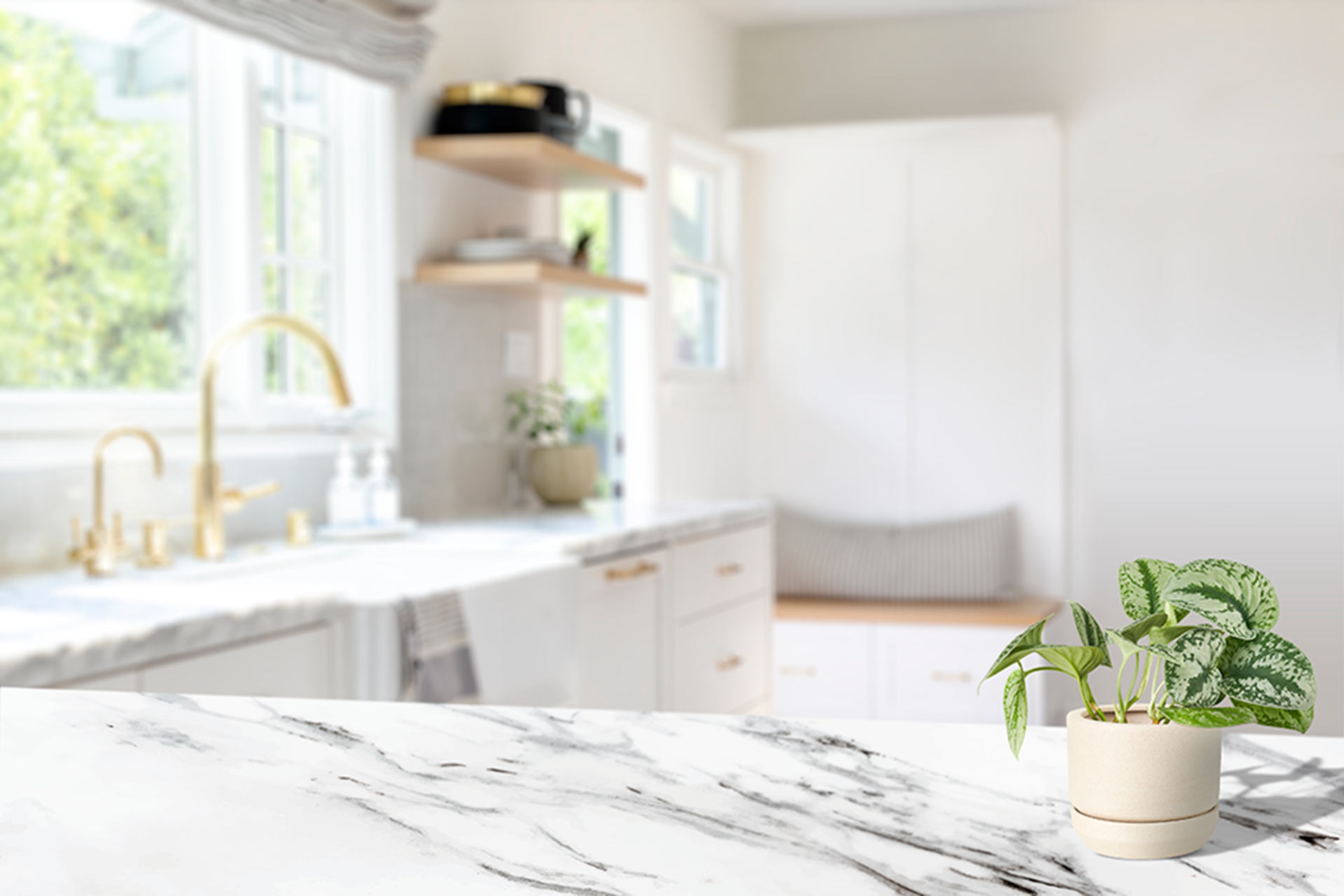
Quartz vs. Granite: Pros & Cons, Price, Durability & More!
One of the most ingenious home renovations a homeowner can do is to replace cheap countertops with something more attractive and durable. Finely crafted countertops are a reliable way to alter a home’s appearance and increase its function drastically. But what is the ideal material to work with?
Many argue that you will likely compare quartz vs. granite when looking at the top contenders for countertop materials. Both materials have pros and cons and can be found in many high-end homes. Below you’ll find all of the information you need to help you choose between these excellent selections.
Granite vs. Quartz
Deciding whether you want granite vs. quartz countertops will depend on a few factors. How durable do you need your countertops to be? Are you planning to use them heavily? Style and preferred aesthetic will also be critical components in your decision. Your budget will also make a difference in what material you select.
It’s best to start by researching the pros and cons of each of these materials to get a better idea of what will be best for your home.
Granite Pros & Cons
Granite is an igneous rock that comes from the magma beneath the earth’s surface. It hardens into a rugged, durable rock when it reaches the cool air.
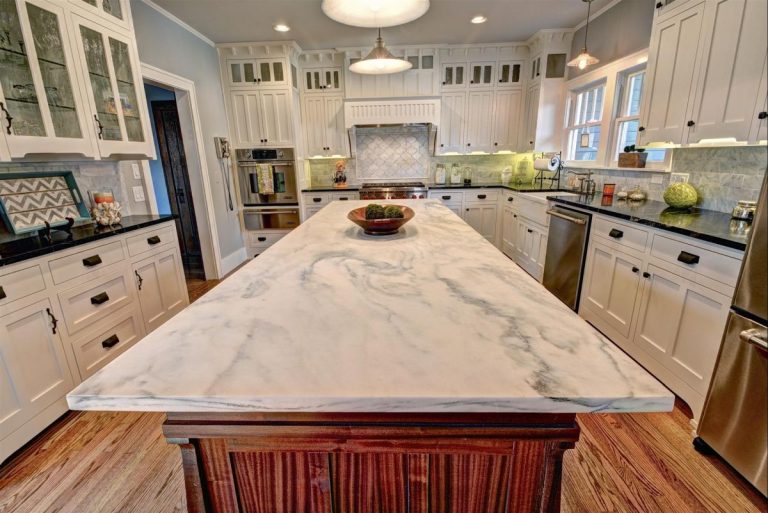
There are a lot of great reasons to select granite countertops, but here is a breakdown of the pros and cons to be sure of what you are investing in:
Granite Pros
- Not only is it relatively common, but it also doesn’t require much manufacturing from the quarry to your home. Once it’s polished, it’s ready to go.
- Granite is 100% natural.
- Granite is incredibly durable, making it a popular building material.
- Granite is generally more affordable to install than quartz.
Granite Cons
- Although it is relatively common, granite must be mined in a quarry, making it less eco-friendly than other materials.
- Granite is porous, so although it is incredibly strong, there are certain chemicals it shouldn’t come in contact with. You will want to research acids or cleaners to avoid them.
- It can be harder to prevent stains on granite. It’s essential to mop up any spills quickly.
- Granite must be sealed when it is installed and once yearly to ensure its longevity.
Quartz Pros & Cons
Quartz is a mineral that naturally occurs in other stones and rocks, including granite. The amount of naturally occurring quartz in quartz countertops depends on the manufacturer. What isn’t quartz is usually resin.
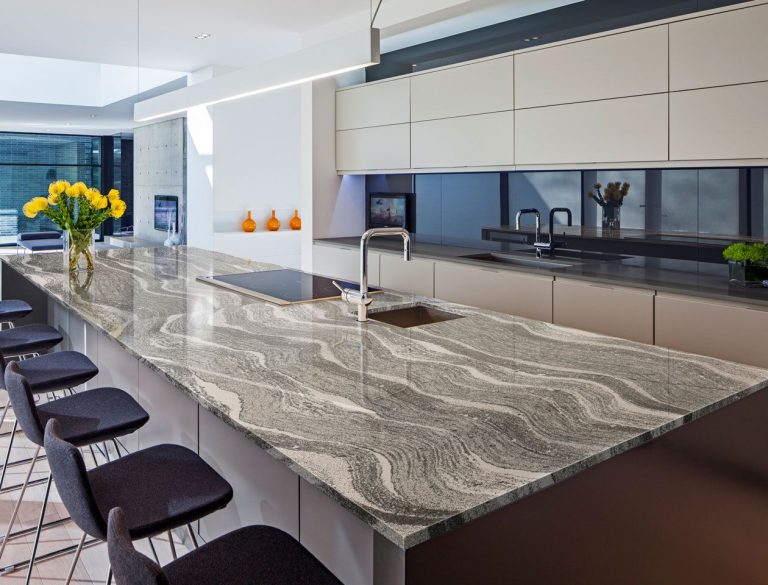
Quartz can also be quite colorful. Some of these colors are naturally occurring, but quartz can also have pigment. Gray and white are incredibly popular, but you may have even seen a pink or blue countertop at some point.
Quartz Pros
- Quartz countertops are one of the hardest materials in the market. It is almost impossible to break quartz through force alone.
- Quartz is non-porous, making it perfect for resisting bacteria and stains.
- Quartz is a prevalent mineral, and about 5-10% of the countertop is resin. This makes it slightly more sustainable than granite if you purchase it locally.
- Quartz is slightly easier to customize when it comes to appearance.
Quartz Cons
- Because more labor goes into creating quartz countertops, they are typically more expensive to install than granite.
- Quartz is incredibly heavy, making installation more complex than with other materials.
- Quartz can sustain damage from too much heat, so you must use hot pads when setting down a pan or pot.
Quartz vs. Granite Installation
Understanding how a countertop is installed is another excellent way to help you decide between quartz and granite.
Natural stone countertops are cut into slabs, which a professional fabricator then shapes. Not attempting to cut your quartz or granite countertops is important since special techniques and equipment are required. It’s also much more challenging to get an exact fit with these materials if you aren’t adequately trained.
Once the contractors have installed it, the granite will need to be sealed. Quartz won’t require this treatment.
The whole process shouldn’t take more than a day or two, depending on how much you need to install. For small kitchens or bathrooms, it may only take a few hours.
Quartz vs. Granite Cost
So, what is more expensive, granite or quartz? Is quartz cheaper than granite?
In most cases, a granite countertop is cheaper than quartz, but it will depend on a few different factors:
- How large of a countertop you need is one of the most significant factors. Large spaces will be more expensive.
- How long the installation takes will also significantly affect the process. This makes prepping your home for the workers a great way to help cut down on costs.
- It’s essential to speak to different contractors to get a good estimate of how much it costs to renovate your counters. Not everyone will charge the same, but you will get an idea of the average.
- Customizations can also significantly drive up the cost of any project. You will likely spend more if you choose to go with an unusual color or other personalization.
- The removal of the old countertop will also drive up costs. If you feel comfortable doing your own demolition and removing it, this can bring down costs and speed up the project.
Choosing Quartz vs. Granite Countertops
Deciding which material is right for you and your home can be an overwhelming experience. With a little research, however, you can trust your gut.
If you still feel overwhelmed, the professionals at GC Flooring Pros can help you find the perfect countertop to fit your home. Expertise and top-quality materials can help you achieve the style and functionality of your dream home.
Remember to check out the other incredible services offered so that every surface in your home shows off your impeccable taste.


